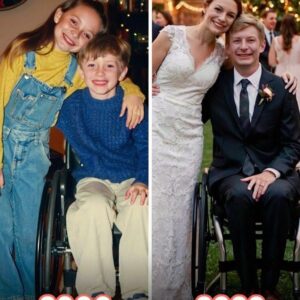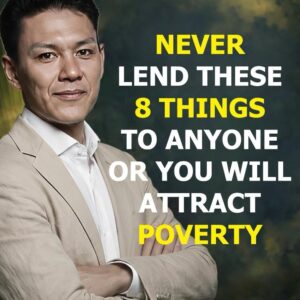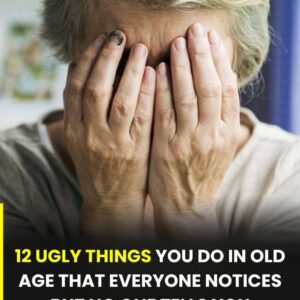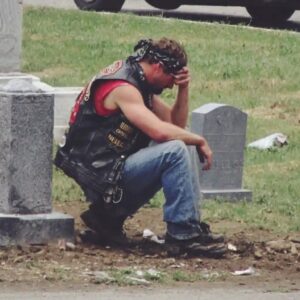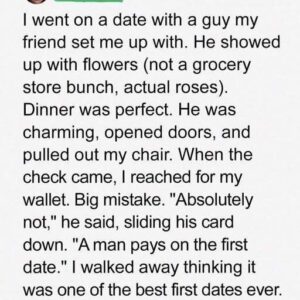My parents divorced when I was just four years old. At first, my dad made an effort to stay involved in my life. But that slowly changed after he married Jane, a woman with three children of her own. As time passed, I faded further into the background. He started missing our plans and brushing off my feelings with excuses like, “You already saw a movie this week,” or “You should be happy we’re doing family stuff.” It felt like I was expected to be grateful just to be remembered.
There was a concert we were supposed to attend together. He had promised. I was excited. Then, at the last minute, he backed out. He said he’d spent the money painting his stepkid’s room instead. When I told him how much that hurt, he dismissed me. “Don’t be dramatic,” he’d say, or worse, “You’re just jealous.”
One year, he promised to help pay for my school trip. I was so relieved. But right before the deadline, he pulled out, saying, “The twins only turn ten once.” My mom stepped in, borrowing money to make it happen—just like she always did. That was the turning point for me. I stopped asking him for anything.
Now I’m graduating—valedictorian, full scholarship in hand. My dad had given me some money to help celebrate, something he offered without me even asking. But two days later, he called and asked for it back. “Your stepbrother’s going through a lot right now,” he said. “He needs it more than you.” I didn’t argue. I just quietly returned the envelope.
Yesterday was the ceremony. A tradition at my school is that parents walk their children to the stage when their name is called. When my name echoed through the auditorium, my dad stood from his seat, clearly preparing to come up. But as he looked toward me, he froze.
Because next to me, holding my hand and wearing a navy-blue dress she probably picked out just for the occasion, was my mom. The woman who stayed up helping me study. The woman who worked weekends so I could attend science camp. The woman who sold her own jewelry to buy me my first laptop. She looked elegant, serene—completely in place. And she was.
For a brief moment, the crowd’s applause faded into silence inside my chest. My dad hesitated, caught between standing and sitting. Then he sat down. I held my mom’s hand tighter, and we walked to the stage together.
Later, at the reception, he approached. I was surrounded by classmates, teachers, and proud parents. He cleared his throat like he used to when I was younger, right before grounding me. “Can we talk?” he asked. I nodded. I’m not unkind.
We stepped aside, under the shade of a tree.
“I didn’t know you’d choose her,” he said, not quite meeting my eyes.
“You mean my mother?” I asked, my voice even. “The one who raised me?”
He scratched the back of his neck. “It’s just… it’s usually the father who walks their child.”
I looked at him and said, “You walked away a long time ago.”
He winced. I wasn’t done.
“She’s the one who stayed. You gave me money, then took it back. She gave me everything, and never once made me feel like I owed her.”
He looked down at the grass. “I made mistakes.”
“No,” I said. “You made choices. You chose them over me—again and again. It wasn’t an accident.”
There was a long pause. Then he said, “I didn’t mean to hurt you.”
“But you did,” I replied. “And the worst part? I stopped expecting anything from you. Not because I stopped caring, but because I knew you’d always find a reason to say no.”
His eyes glossed over, and for a second, I saw a glimpse of the man he used to be—the one who carried me on his shoulders and sang silly songs. But that man had disappeared years ago.
“I want to fix this,” he whispered.
“Then show up,” I said. “Not just when it’s easy or when it looks good.”
He nodded. “I will.”
Maybe he meant it. Maybe he didn’t. But I wasn’t holding my breath.
That evening, my mom and I sat on the porch, eating leftover cake and watching stars blink into the night sky.
“You were brave today,” she said.
“So were you,” I told her.
She smiled the way only a mother can—like I was her whole world, and she’d live through every sacrifice again without hesitation.
“I didn’t mean to make a scene,” I said softly.
“You didn’t,” she replied. “You just told the truth. And sometimes that speaks louder than anything else.”
I don’t know what lies ahead for me and my dad. I’m open to healing. But I’ve learned that biology doesn’t define a parent. Showing up does. Listening does. Choosing someone, again and again—even when it’s hard.
Because the people who stand by you when you have nothing to offer, those are the ones you never let go of. Sometimes the most important lesson isn’t who walked away—it’s who stood in the gap. And it’s never too early or too late to give those people their flowers while they’re still here to smell them.
If you’ve ever felt forgotten, or been lifted up by someone who didn’t have to love you but did anyway—this story is for you. And if it spoke to you, maybe share it. Someone else out there needs to know they’re not alone.
